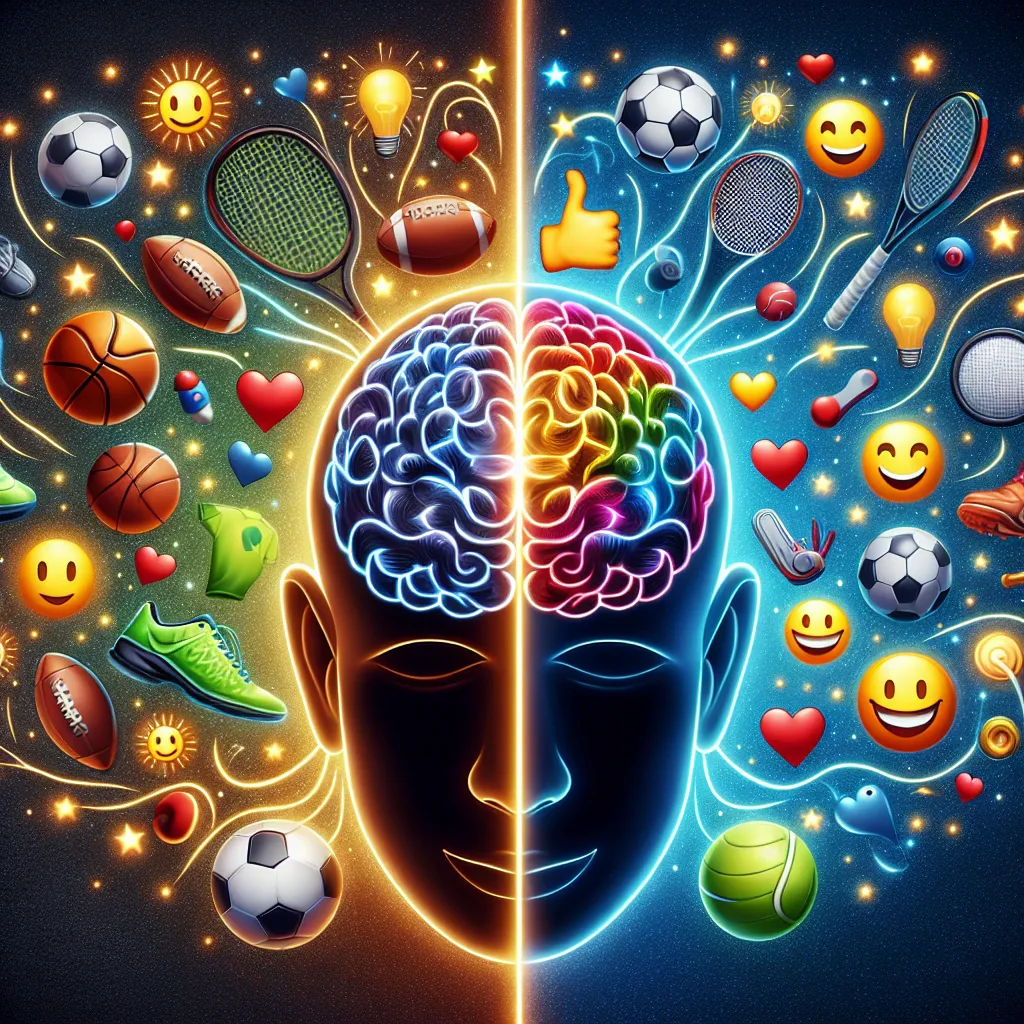Sports and mental health are two interconnected topics that frequently appear in IELTS exams. Understanding the vocabulary related to these subjects is crucial for test-takers aiming to achieve high scores. In this comprehensive guide, we’ll explore key terms, their usage, and effective strategies to master them for your IELTS preparation.
Understanding the Basics: Defining Sports and Mental Health
Before diving into specific vocabulary, let’s establish a clear understanding of our main terms.
Sports /spɔːrts/ (noun): Physical activities that involve skill and physical prowess, often competitive in nature.
Mental health /ˈmentl helθ/ (noun): A person’s condition with regard to their psychological and emotional well-being.
These two concepts are often linked in discussions about overall well-being, making them a popular topic in IELTS exams.

Key Vocabulary in Context
1. Endorphins
Endorphins /enˈdɔːrfɪns/ (noun): Natural chemicals produced by the body that can reduce pain and stress.
Example: Regular exercise stimulates the release of endorphins, which can improve mood and reduce anxiety.
Analysis: This sentence demonstrates the direct link between physical activity (exercise) and mental health benefits (improved mood, reduced anxiety). The term “endorphins” is crucial in explaining the physiological basis for the mental health benefits of sports.
2. Resilience
Resilience /rɪˈzɪliəns/ (noun): The capacity to recover quickly from difficulties.
Example: Participating in team sports can build resilience, helping individuals cope better with life’s challenges.
Analysis: This example showcases how sports can contribute to mental toughness. The term “resilience” is often used in discussions about mental health and personal development, making it valuable for IELTS essays on this topic.
3. Mindfulness
Mindfulness /ˈmaɪndfʊlnəs/ (noun): The practice of being aware and fully present in the moment.
Example: Many athletes incorporate mindfulness techniques into their training regimen to enhance focus and reduce performance anxiety.
Analysis: This sentence illustrates the application of a mental health practice (mindfulness) in a sports context. It’s an excellent example of how mental health strategies can be integrated into athletic training.
4. Stress relief
Stress relief /stres rɪˈliːf/ (noun): The reduction of tension or anxiety.
Example: Regular physical activity is widely recognized as an effective form of stress relief, promoting better mental health.
Analysis: This example directly connects sports (physical activity) with mental health benefits (stress relief). The phrase “stress relief” is commonly used in discussions about mental well-being and lifestyle choices.
5. Self-esteem
Self-esteem /ˌselfɪˈstiːm/ (noun): Confidence in one’s own worth or abilities.
Example: Achieving personal bests in sports can significantly boost an individual’s self-esteem, contributing to overall mental well-being.
Analysis: This sentence demonstrates how success in sports can positively impact mental health. The term “self-esteem” is crucial in discussions about personal development and mental health.
Frequency in IELTS Exams
These terms and related concepts frequently appear in various sections of the IELTS exam:
- Reading: Passages about sports psychology or the benefits of exercise on mental health.
- Listening: Conversations or lectures discussing sports programs and their impact on community mental health.
- Writing Task 2: Essays exploring the relationship between physical activity and psychological well-being.
- Speaking: Questions about personal exercise habits or opinions on the role of sports in maintaining good mental health.
Vocabulary Analysis
Word Structure
Let’s break down a complex term:
Psychophysiological /ˌsaɪkəʊˌfɪziəˈlɒdʒɪkl/ (adjective)
- Prefix: “psycho-” (relating to the mind)
- Root: “physio-” (relating to the body)
- Suffix: “-logical” (pertaining to the study of)
This term often appears in academic discussions about the mind-body connection in sports and mental health.
Synonyms and Antonyms
Well-being /ˌwelˈbiːɪŋ/ (noun): A state of being comfortable, healthy, or happy.
- Synonyms: Wellness /ˈwelnəs/, health /helθ/, welfare /ˈwelfeə(r)/
- Antonyms: Distress /dɪˈstres/, illness /ˈɪlnəs/, malaise /məˈleɪz/
Understanding these related terms can help you express ideas more precisely in your IELTS responses.
Memory Techniques
Mind Mapping
Create a mind map centered on “Sports and Mental Health,” branching out to related concepts like:
- Physical benefits
- Psychological advantages
- Social aspects
- Stress management techniques
This visual representation helps in understanding and remembering the interconnections between various aspects of the topic.
Storytelling
Imagine a narrative about an athlete overcoming performance anxiety through mindfulness techniques. This story could incorporate key terms like endorphins, resilience, and self-esteem, making them more memorable.
Practice Exercises
-
Write a paragraph discussing the role of team sports in developing social skills and improving mental health.
-
Create sentences using the following pairs of words:
- Endorphins and mood
- Resilience and challenges
- Mindfulness and performance
-
Describe a personal experience where physical activity positively impacted your mental state, using at least three vocabulary terms from this guide.
Conclusion
Mastering the vocabulary related to sports and mental health is essential for success in the IELTS exam. By understanding these terms in context, analyzing their structure, and practicing their usage, you’ll be well-equipped to discuss this topic confidently across all sections of the test.
Remember, consistent practice and application of these terms in various contexts will solidify your understanding and improve your ability to use them effectively in the exam. Don’t hesitate to share your experiences or ask questions about these vocabulary items in the comments section below. Good luck with your IELTS preparation!